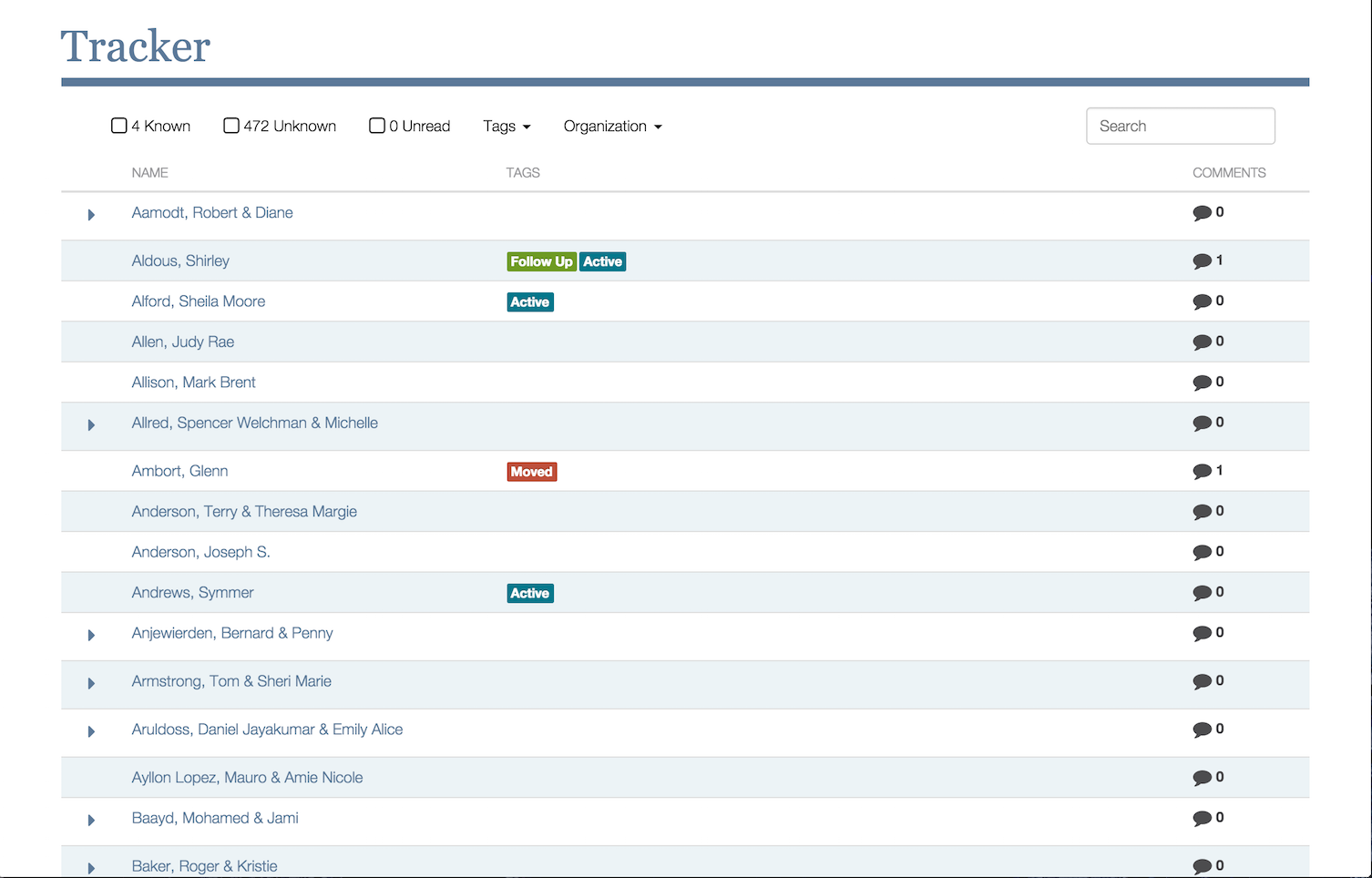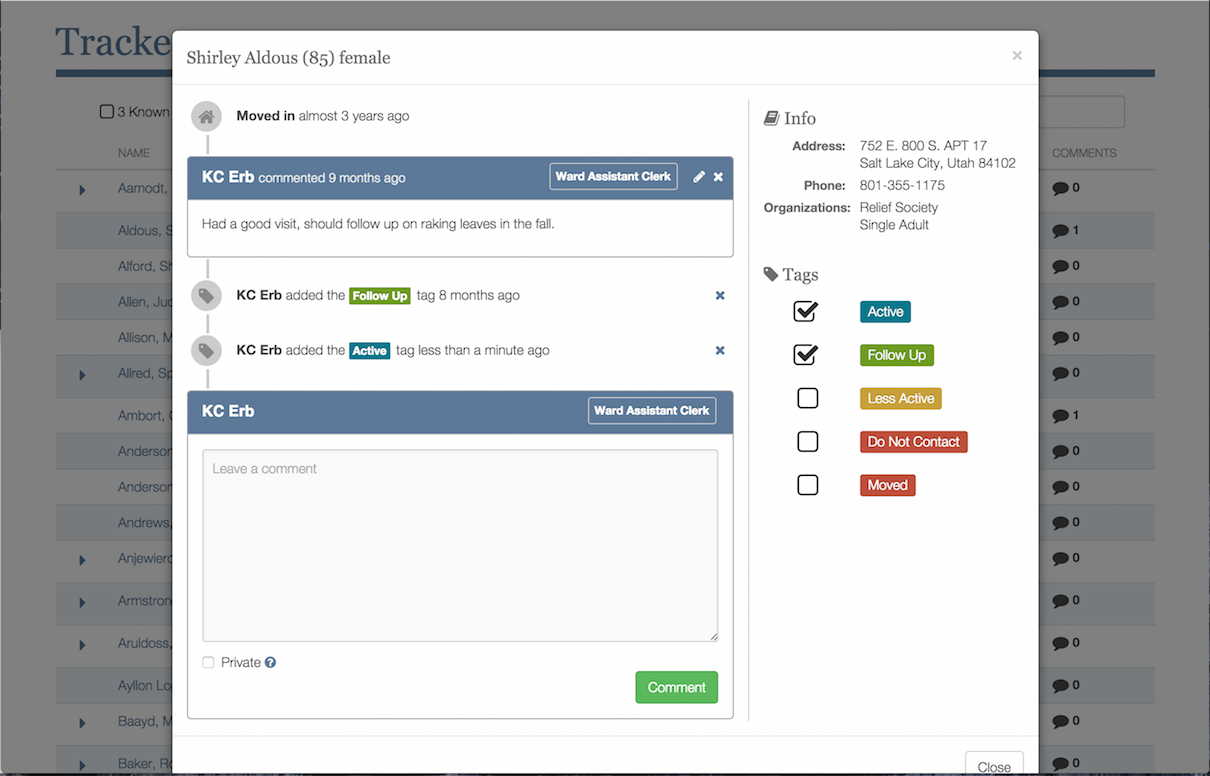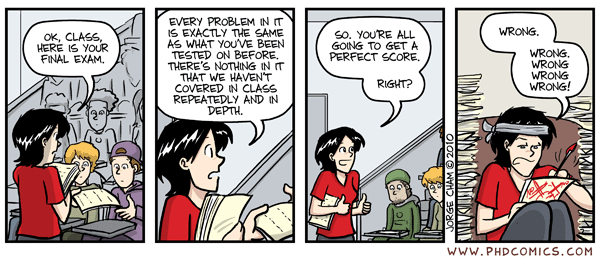
Programming is my favorite thing to do in my spare-time, but it didn't start that way.
My first introduction to programming was through Mathematica and MATLAB (being a physics student and all), and my experiences there can be summed up by this actual quote from one of my textbooks.
When coding physics, don’t follow the computer science convention of making your code more “readable” by using long variable names ...
If you program like this, your code won’t match the math, you’ll drive yourself crazy with typos, and you’ll end to [sic] your programming career prematurely due to repetitive-stress injury.
Wow. The whole textbook is full of variables like a and functions like pfft. From these few sad semesters my impression of “writing code” was enough to keep me away from it for good.
Or so I thought.
A Project
In the following years I often needed to write little bits of software for my research. I had a soft-spot for Mathematica so I did everything in that language. As I grew to realize the utility of writing software, I found myself writing more and more Mathematica code to do things that Mathematica was never intended to do. One day I was showing my code to a cousin who laughed at my bank of CSV files calling it a “poor man’s database”. “Data-what?” I thought. There was a thing for doing this?
Shortly after that leaning tower of copypasta came tumbling down, a good friend introduced me to “the poignant guide”. From there, I learned about Shoes and found a strange transformation taking place inside my brain. My then girlfriend (now wife) would take a bathroom break on a date and out would come my laptop to finish typing that last method I’d been crafting. At the time I wasn’t sure how to cope with my new identity but now I’m a happy Ruby addict and my journey has taken me through all the familiar paths: rails, HTML, CSS, JS, git, relational-databases etc. In the meantime the physics world put me in contact with C, OpenCL, C++, Python, and yes even a little FORTRAN. Most recently I’ve been digging into the murky depths of PHP as I’ve been building some Drupal modules at work.
A Highly Portable Folio
Since that turning point, I’ve spent hundreds of hours on a handful of projects. One could basically see all of my work by just visiting my github profile: github.com/KCErb. If you’re interested in a guided tour, read on and click the links! But be warned, my time in grad school and my software contracting work have taken me away from open-source for a while so you might find these a little cobwebby.
Apps
The common thread through all of my hobby projects has been app writing. Shoes was my first love and my most recent projects are still aimed at helping the Shoes project. The motivation for working on Shoes and later building an app in rails was to build better tools for doing my church assignments like home teaching or working with church records. I’ve always found it very rewarding to dream up an interface and then implement it from model to view to controller. Here’s what my first rails app (built in late 2014) looked like:


This was one that my bishop needed to help keep track of people in our local congregation.
At the time, we lived near downtown Salt Lake and were coordinating a lot of volunteer work
for a very transient group. The tracker helped keep track of who we’d met, how long ago, and details about the visit.
Sadly that project has been dying a slow death from lack of testing, and I’m now in the process of building it the right way: BDD FTW!
Tutorials
For a while I focused my efforts on tutorial writing. I’ve learned from my time teaching physics that one of the best ways to master a topic is to teach it.

So if my goal is to learn mobile app-development and to master Shoes, then I should try to teach it to someone. The Shoes tutorials, for example, have taught me about excellent gem structure as I’ve been digging through some of the structure of the Shoes project. My RubyMotion tutorials on the other hand have taught me a familiarity with the basics of Objective-C and Java.
Before I started working with RubyMotion, I used Ruboto to get started with App development and so I have some of my very first tutorials about that hosted here as well.
Other Projects
Outside of learning app development, I wrote a considerable amount of MATLAB code (against my will) as I worked in image processing. Though a lot of that code is still private (it isn’t published in a journal, so I can’t share it yet) the parts I’m allowed to make public, I plan to put in the bread project which right now just hosts the Ruby tool I used to make my scientific-poster. I have grand
dreams of someday building bread into a proper Ruby-based infrastructure for modern software science. It’ll support everything from data-acquisition to final presentation tools. Heck Crystal might even play a role! But for now, I’ll have to settle for using what’s available to do my classwork and keep dreaming.
Lastly, there’s one other project to mention: the card drafter. This little tool was in development when I worked on a game with some of my friends. We needed a little something to quickly iterate cards during the drafting process so I threw that together and with the right motivation might try to make it more general purpose than it currently is.
The Present
Financial support during my transition from medical to theoretical physics has been graciously provided by an awesome company in Salt Lake: Lolo llc. We just launched a new website and apps for Jillian Michaels. My role in that project has been on the backend writing the integrated payment system which talks to the Apple Store, Play Store, and our own payment processing to give a unified representation of a user’s subscription. With Lolo I’m having a great time solving problems, learning new skills, and writing code that I’m proud of with a team that I enjoy working with.
A few months ago, another company, Kings Distributed Systems, contacted me about translating some old math and physics libraries into Javascript for their new Distributed Compute project. That experience has put me deep into the inner workings of numerical libraries, Fortran, and the like. It’s been very rewarding to see a 30+ year-old Fortran library hum along just fine in Javascript and thus take the next step towards a whole paradigm in scientific computing which I’ll have to write about some other time. If you want to learn more just check out: sparc.network.